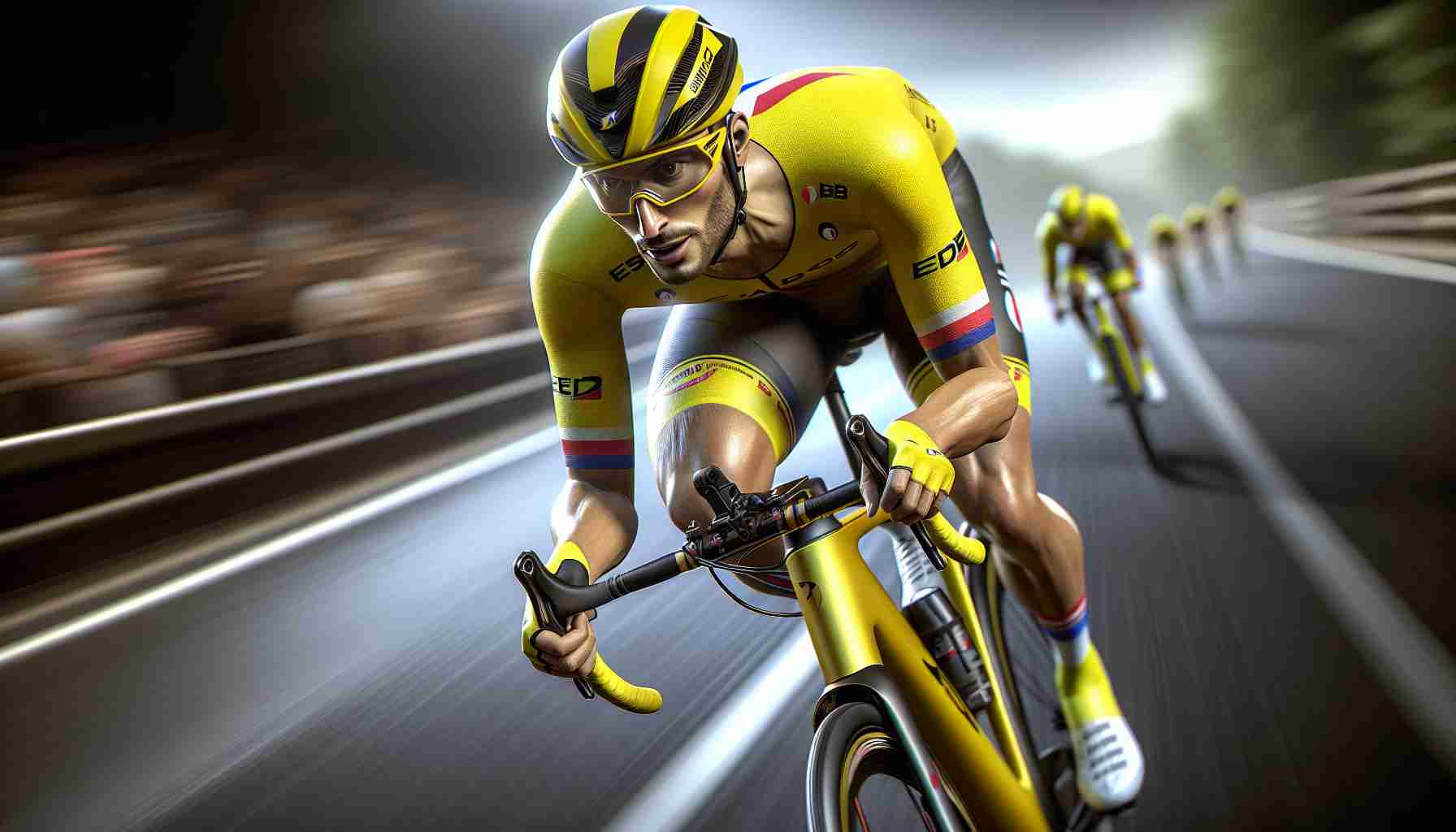The thrilling world of E-Bike racing just got a new star, and he’s from France! This summer, French cyclist Jérôme Gilloux claimed his third world championship title in a dramatic showdown in Andorra.
Cycling enthusiasts will recognize that E-Bike races, while similar to traditional cross-country cycling, feature shorter and more technically demanding courses that challenge athletes’ endurance and skills. Slightly over eight years ago, the sport lacked a formal championship, with passionate riders limited to competing in local events across France.
Jérôme, who rides for the renowned Lapierre team, reflects on his journey in this emerging sport. His connection with E-Bikes stemmed from inspiration from a friend who owned a bike shop. After trying out different cycling disciplines, ranging from road cycling to motocross, Jérôme found his niche in E-Bike racing. Notably, he was supported by cycling legend Nicolas Vouilloz, who played a pivotal role in his career transition.
Over the past six seasons, Jérôme has achieved an incredible streak, standing on the podium in every competition he attended and securing three world titles in the last four years. As the E-Bike racing scene gears up for future growth, Jérôme aims to expand his title collection even further, with ambitions set on defending his crown in the 2025 championships.
The Next Frontier of Racing: E-Bikes Reshape Sporting Culture
As E-Bike racing gains momentum, its implications extend far beyond the finish line. The rise of this sport reflects a broader shift in societal attitudes toward cycling and green transportation. With urban congestion and environmental concerns prompting a reevaluation of personal mobility, E-Bikes offer a viable alternative. This evolving landscape not only promotes physical fitness but also champions sustainability and clean energy.
The global economy stands to benefit significantly from the expansion of E-Bike racing. As manufacturers compete to innovate lighter, faster, and more efficient models, we can expect an influx of investment and job creation within the cycling industry. With projections indicating the global e-bike market could surpass $120 billion by 2028, this trend is not merely a surge in sport, but a transformative economic wave that could redefine transportation economics.
However, we must also consider potential environmental implications. E-Bikes, while beneficial for reducing carbon footprints, require lithium-ion batteries, which pose their own ecological challenges. Responsible sourcing and recycling of these batteries will be crucial as the sport grows.
Looking ahead, the long-term significance of E-Bike racing will likely manifest in cultural shifts as communities rally around this exhilarating sport. With athletes like Jérôme Gilloux leading the charge, E-Bike racing could inspire a new generation to redefine boundaries in both sport and sustainability, reminding us that the future of cycling is not just on two wheels, but powered by innovation.
The Rise of E-Bike Racing: Meet the French Champion Jérôme Gilloux
Introduction to E-Bike Racing
E-Bike racing has rapidly gained popularity within the cycling community, evolving from informal local competitions to an internationally recognized sport. This summer marked a significant milestone with French cyclist Jérôme Gilloux clinching his third world championship title in Andorra, solidifying his reputation in this thrilling biking discipline.
What is E-Bike Racing?
E-Bike racing combines the endurance of traditional mountain biking with the added power of electric bikes, allowing racers to tackle shorter yet technically demanding courses that test their skills and stamina. Unlike regular cross-country cycling, E-Bike races often feature challenging terrains that require strategic thinking and agility.
Jérôme Gilloux: A Champion’s Journey
Jérôme Gilloux’s journey into E-Bike racing is both inspiring and remarkable. Initially pursued various cycling disciplines, including road cycling and motocross, it was a friend’s influence and a personal trial of E-Bikes that redirected his career. Supported by cycling stalwart Nicolas Vouilloz, Gilloux transitioned into E-Bike racing, where he has thrived over the past six seasons. His impressive record includes standing on the podium in every competition he participated in and securing three world titles in just four years.
Future of E-Bike Racing
As the sport grows, E-Bike racing is witnessing an influx of technological innovations and increased participation. Trends indicate a rise in various competitions worldwide, attracting not just seasoned cyclists but also new enthusiasts keen to test their skills in this dynamic environment.
Pros and Cons of E-Bike Racing
Pros
– Accessibility: E-Bikes allow riders of different skill levels to participate in races.
– Innovation: The emergence of new technologies can enhance bike performance and rider experience.
– Community Growth: The sport fosters a vibrant community of enthusiasts and professional riders.
Cons
– Equipment Costs: High-quality E-Bikes can be expensive, which might deter potential racers.
– Regulations: As the sport develops, ensuring uniform regulations across competitions is vital to maintain fairness.
Jérôme’s Ambitions Ahead
With an eye on future championships, Jérôme Gilloux is not resting on his laurels. He is already preparing to defend his title in the 2025 championships, seeking to extend his remarkable legacy in E-Bike racing.
Conclusion
The burgeoning world of E-Bike racing, exemplified by athletes like Jérôme Gilloux, is set for further expansion. With technological advancements and growing support, E-Bike racing promises to be an exhilarating part of competitive cycling for years to come.
For more insights into the world of cycling, visit Cycling News.
